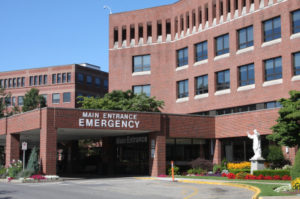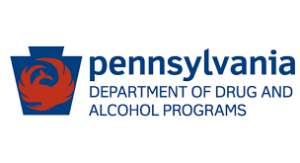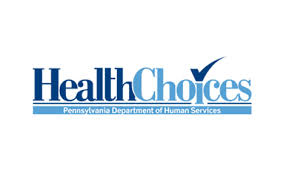PA Health Policy Update for July 28
The following is an update of selected state health policy developments in Pennsylvania from July 24 – 28. (Some of the language used below is taken directly from state documents.)
Medicaid Continuous Coverage Unwinding 
The Department of Human Services (DHS) is maintaining an online dashboard with Medicaid continuous coverage unwinding data. The data on this dashboard tracks the renewal process by county and zip code. Additional updates and resources about the Medicaid eligibility renewal process may be found here.
DHS has published the following resources to help providers educate patients about Medicaid renewals and what to do if they are no longer eligible for Medicaid.
General Assembly
The Center for Rural Pennsylvania will hold a public hearing Thursday, August 3 at 9:00 a.m. on rural hospital and healthcare sustainability to explore difficulties facing rural hospitals and health systems. The hearing will be held at the University of Pittsburgh at Bradford and will be livestreamed here. More information on the hearing and a tentative agenda can be found here.
Department of Human Services
The Department of Human Services (DHS) has issued a Medical Assistance Bulletin notifying providers enrolled in the Medical Assistance (MA) Program that an updated version of the sterilization consent form (MA 31) is available for use.
DHS has shared the following presentations used at the Medical Assistance Advisory Committee (MAAC) meeting on July 27.
- Office of Developmental Programs (ODP) Updates
- Office of Mental Health & Substance Abuse Services (OMHSAS) Updates
- Pennie Presentation
- Office of Medical Assistance Programs (OMAP) Updates
- Office of Long-Term Living (OLTL) Updates
- List of Medical Assistance Bulletins
Department of Health 
- The Department of Health’s (DOH) Healthcare Incident Management System (HIMS) has transitioned from the Corvena to the Juvare software platform. Hospitals, rehabilitation, psychiatric, and long-term care providers are strongly encouraged to attend training on the new platform. Learn more about HIMS here and register for an upcoming training webinar here.
- DOH has published a COVID-19 Infection Control and Outbreak Toolkit for Long-Term Care. The resources in the toolkit are intended to expand upon infection prevention and control guidance from the Centers for Disease Control and Prevention (CDC) for long-term care facilities for COVID-19 outbreak preparation and response.
- DOH has announced it will be transitioning the LTC RISE program to its next phase – LTC RISE 2.0. The next iteration of the program aims to make regional best practices statewide. It will also scale back on COVID-19 crisis response activities; however, those capabilities will be preserved in the event of an increase in COVID-19 outbreaks. Learn more about LTC RISE 2.0 here.
- DOH has issued a Health Advisory (2023 – PAHAN – 710) alerting health care providers that, effective July 10, 2023, the state Medicaid program no longer requires prior authorization for preferred hepatitis C agents on the DHS Statewide Preferred Drug List (PDL). This change applies to MA beneficiaries receiving benefits in both fee-for-service and managed care delivery systems.
Department of Drug and Alcohol Programs
The Department of Drug and Alcohol Programs (DDAP) has released a Policy Bulletin (No. 23-02) describing modifications to the DDAP Gambling Treatment Manual.
Insurance Department
The Pennsylvania Insurance Department (PID) is exploring the possibility of updating the Commonwealth’s Essential Health Benefits benchmark (EHB-benchmark) plan. As a part of that process, the department is seeking public input about which benefits to potentially include in an updated EHB-benchmark plan. Comments are due by September 1, 2023. Find additional information in this Pennsylvania Bulletin notice.


 That continuous Medicaid eligibility, however, will end on April 1 and states have one year to redetermine Medicaid eligibility for everyone currently enrolled in the program. In Pennsylvania, the state estimates that nearly 600,000 of the 3.6 million people now participating in the program will lose their eligibility and another nearly 600,000 may be in danger of doing so.
That continuous Medicaid eligibility, however, will end on April 1 and states have one year to redetermine Medicaid eligibility for everyone currently enrolled in the program. In Pennsylvania, the state estimates that nearly 600,000 of the 3.6 million people now participating in the program will lose their eligibility and another nearly 600,000 may be in danger of doing so. Department of Human Services
Department of Human Services Health Care Cost Containment Council (PHC4)
Health Care Cost Containment Council (PHC4) Shapiro-Davis Transition
Shapiro-Davis Transition Department of Drug and Alcohol Programs
Department of Drug and Alcohol Programs General Assembly
General Assembly Changes in HealthChoices managed care plans that take effect on September 1.
Changes in HealthChoices managed care plans that take effect on September 1. General Assembly
General Assembly Governor Wolf
Governor Wolf Department of Drug and Alcohol Programs
Department of Drug and Alcohol Programs Stakeholder Events
Stakeholder Events HealthChoices Changes
HealthChoices Changes